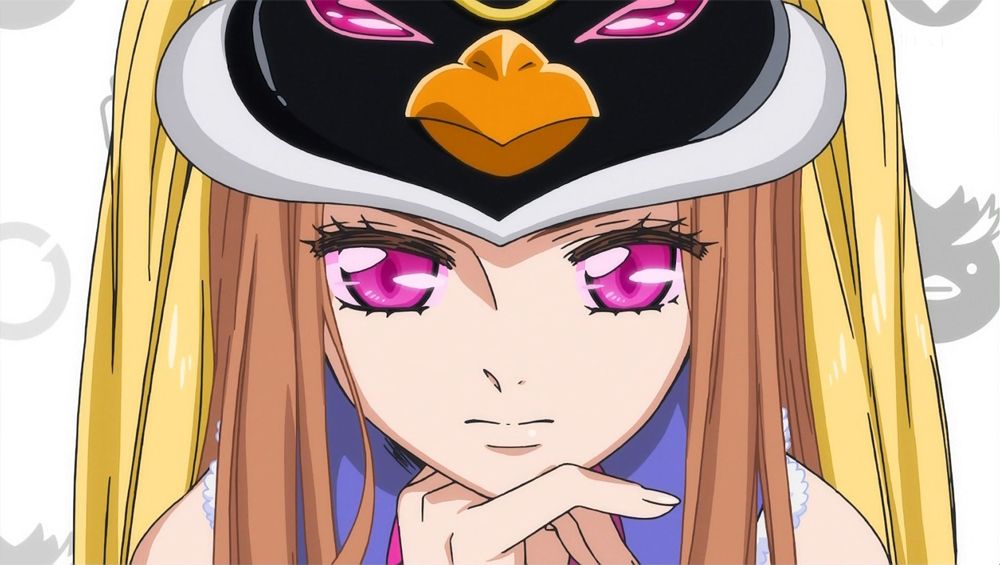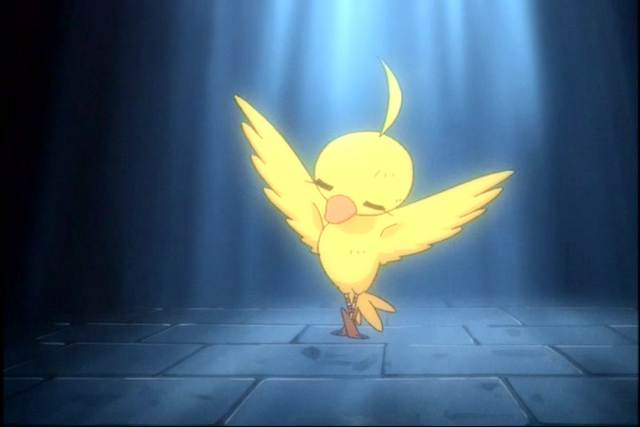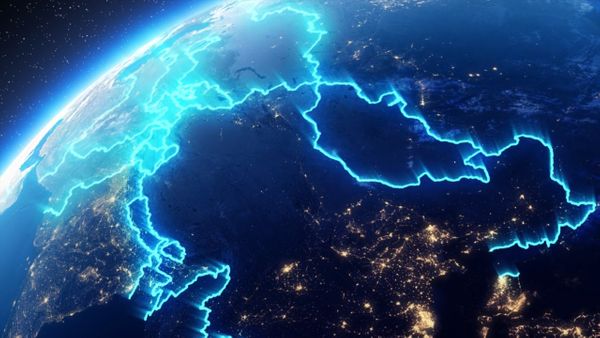Reinterpreting Fate in Mawaru Penguindrum
I have a riddle for you.
What are you fighting when you initiate a survival strategy, or, even better, a "longevity tactic"?
What are you defying when you drink koi blood, when you "live for a hundred years"?
What are you challenging when you steal the (ashes of the) fire of the gods?
What are you opposing when you think yourself the lamb of God, when you say you're taking onto yourself "the sins of the world", when you want to bring forth an apocalypse in order to save us all?
What are you confronting when you are willing to sacrifice yourself for another?
What is inexorable, implacable, unreasonable?
What is The Most Unjust?
...fate?
Doesn't quite fit, does it?
In Penguindrum, fate is entropy. Chaos. Disorder. The ultimate end of the universe, of the world, of us. Fate is death, the death of small things and the death of big things. Fate is the third sister, cutting your life short, always.
Fate is also the death of fairness, of our perspectives off the world. Fate is chaotic, messy, the best laid plans being led astray. It's certainly not the stable, consistent, predestined thing Ringo thinks it is, and almost the entire first third of the show is breaking that concept down for us.
And so fighting against fate, whether it succeeds or fails, is identified with order. With life. With plans. With saving others, or at least thinking you're saving others. With technology, even. With aspiration. With big gestures and big plans, with sacrificing yourself for another, with convincing yourself that gassing a subway station is a survival strategy.
And so our characters' approaches to fate start to seem weirdly symmetric. Ringo thinks she can invoke the inhuman, raging nothingness of fate by her plans, even as it coils and twists under her. Himari makes no effort to plan, accepts every single punch the world throws at her... but it doesn't save her from the punches being thrown.
Fate is capricious and chaotic, and it cares not for what you do.
Does this buy us much more than just going with the standard interpretation of fate? Kinda...
There's a strong Haruki Murukami link here. Murukami is the author of Superfrog saves Tokyo, a story written after and for the Kobe earthquake of '95. He also wrote [Underground: The Tokyo Gas Attack and the Japanese Psyche](http://en.wikipedia.org/wiki/Underground_(stories)), "journalistic literature" about the '95 Sarin subway gas attacks. These are both directly referenced by Penguindrum; and the show dives into that particular conversation.
Superfrog has as a major theme the instability of life, the shocking upheavals life thrusts upon us, upto and including national trauma. Its conclusion there is that we can accept that instability and grow beyond it, to realise the fragility of all our order but be satisfied nonetheless.
Underground concludes with a critique of the Japanese reaction to the sarin attacks, on the misguidedness of declaring that "evil bad guys" perpetrated the attacks and refusing to learn about the actual systemic problems that it represents. I get the sense that you could easily rephrase the central argument as Japan being oh-so-willing to call these attacks the work of fate, entropic, chaotic, and thus unfixable, un-reason-with-able, implacable.
Both of these books are part of Murukami's self-styled transition from "detachment" to "commitment", in which he notices his protagonists being more and more capable of addressing social issues like national trauma. He wrote a fascinating article in the NYTimes, which also reads to me as struggling with the role of the author "[in] an age when reality is insufficiently real".
But after a good deal of trial and error, I have a strong sense that I am finally getting it in story terms. Perhaps the solution begins from softly accepting chaos not as something that “should not be there,” to be rejected fundamentally in principle, but as something that “is there in actual fact.”
I may be too optimistic. But as a teller of stories, as a hopefully humble pilot of the mind and spirit, I cannot help but feel this way — that the world, too, after a good deal of trial and error, will surely grasp a new confidence that it is getting it, that the world will undoubtedly discover some clues that suggest a solution because, finally, both the world and story have already crossed the threshold of many centuries and passed many milestones to survive to the present day.
All of this feels to me very much like some sort of synthesis, of this dichotomy we've been talking about. It's acceptance, but not blind acceptance. It's aspiration, but not blind aspiration. It's not the fiat rejection of disorder by imposition, but it's not the passive acceptance of chaos, either. It's pulling value out of the valueless. It's acknowledging death, and sin, and injustice—acknowledging that they should not exist—but not allowing their existence to stop your personal light-in-the-murk.
It's fighting to save Himari, fighting to even save her without paying the price for it—but not letting the inevitably extracted cost turn that aspiration into failure.




